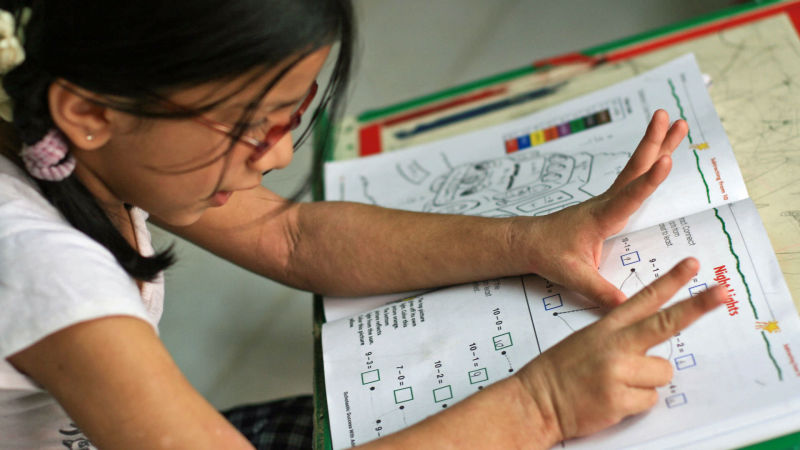Homework has become as much work for parents as it is for kids in many families when parents slog through assignments together with their kids every night. They see it as part of their parental duty to help their children. But when it comes to assisting kids with challenging subjects or an unfamiliar way of learning -- like the new Common Core math standards and homework that requires approaches very different from those learned in previous generations -- frustration that builds from struggling over the homework can foster anxiety.
A study conducted by researchers at the Human Performance Lab at the University of Chicago has found that if parents have high levels of math anxiety and give a lot of homework help (more than two to three times a week), they can have a negative impact on their child’s math achievement and increase their child’s math anxiety.
“This is one of the first studies to look at how math anxiety is produced,” said Erin Maloney, lead author on the study. Researchers have already established that a teacher’s math anxiety negatively affects student performance over the course of the year and leads female students to endorse negative stereotypes about girls’ math abilities. For this study, Maloney and her co-authors Gerardo Ramirez, Elizabeth A. Gunderson, Susan C. Levine and Sian L. Beilock statistically controlled for teachers' math anxiety and content knowledge, along with the socioeconomic status of the children.
“Kids as young as first grade really do report high anxiety about math and that anxiety is linked to their math achievement,” Maloney said. The study found a caregiver’s math anxiety negatively impacted both male and female children equally. And, the effects were bigger the more anxious a parent was and the more often they helped with homework. While not a study of female caregivers in particular, 89 percent of primary caregivers in this study were women.
The study was done with a large sample size of children in first and second grade that was designed to be representative of the Illinois state population. Students in the study completed tests measuring math, reading and math anxiety in the first 12 weeks of school. They were tested again in the last 8 weeks of school. Parents were given a 25-question survey that asked questions about how they feel in various real-world situations requiring math, like tipping at a restaurant.




